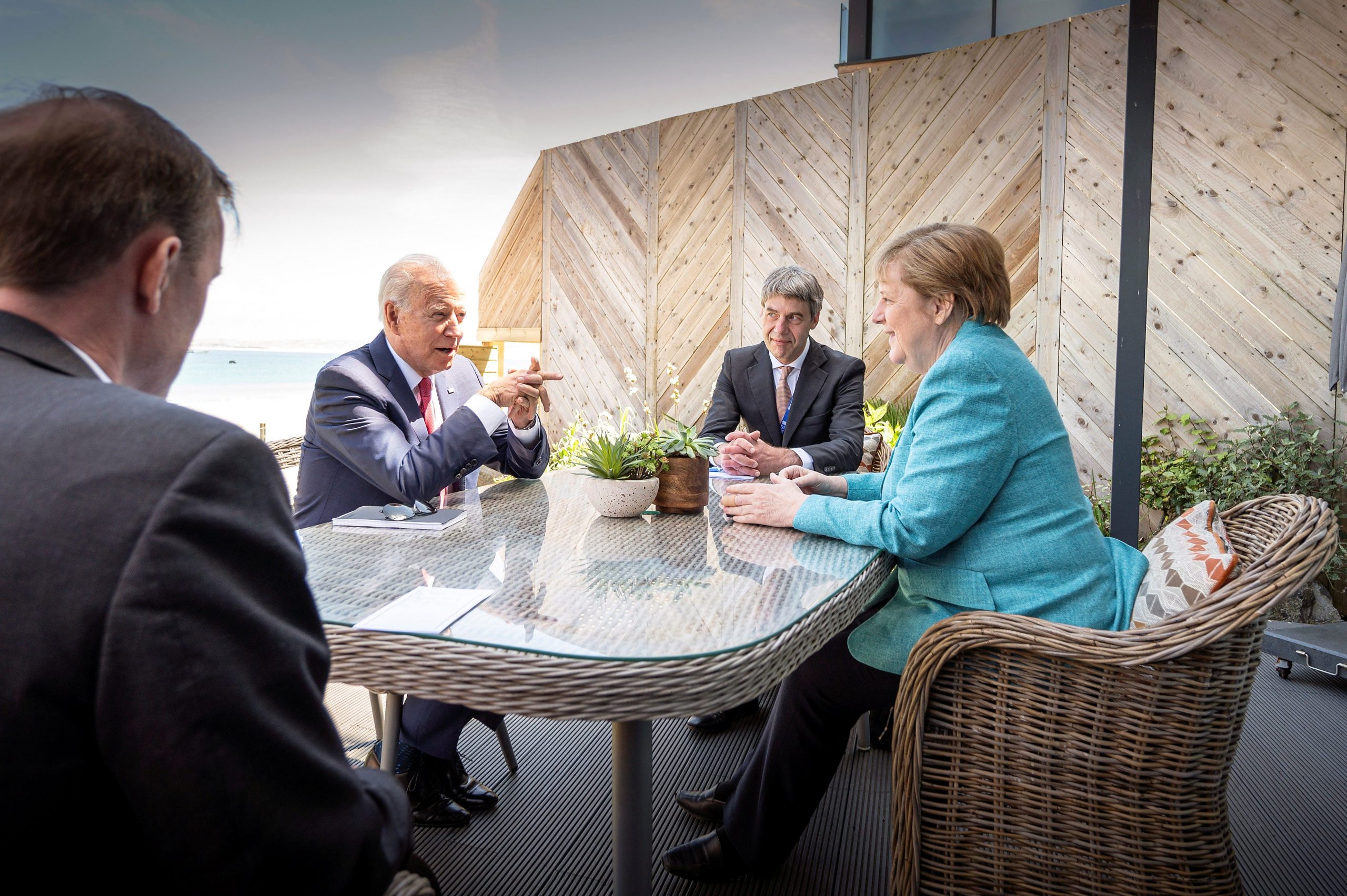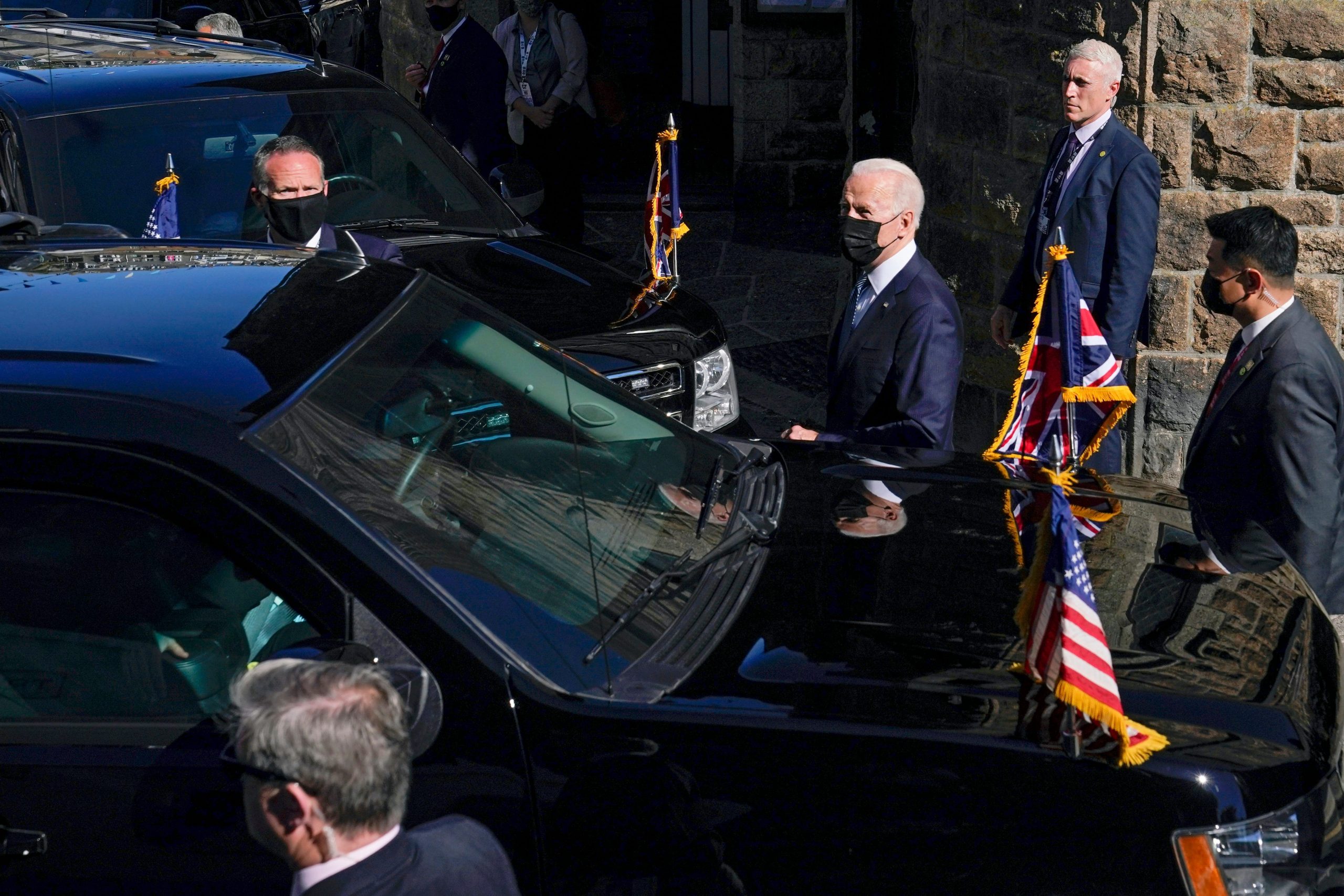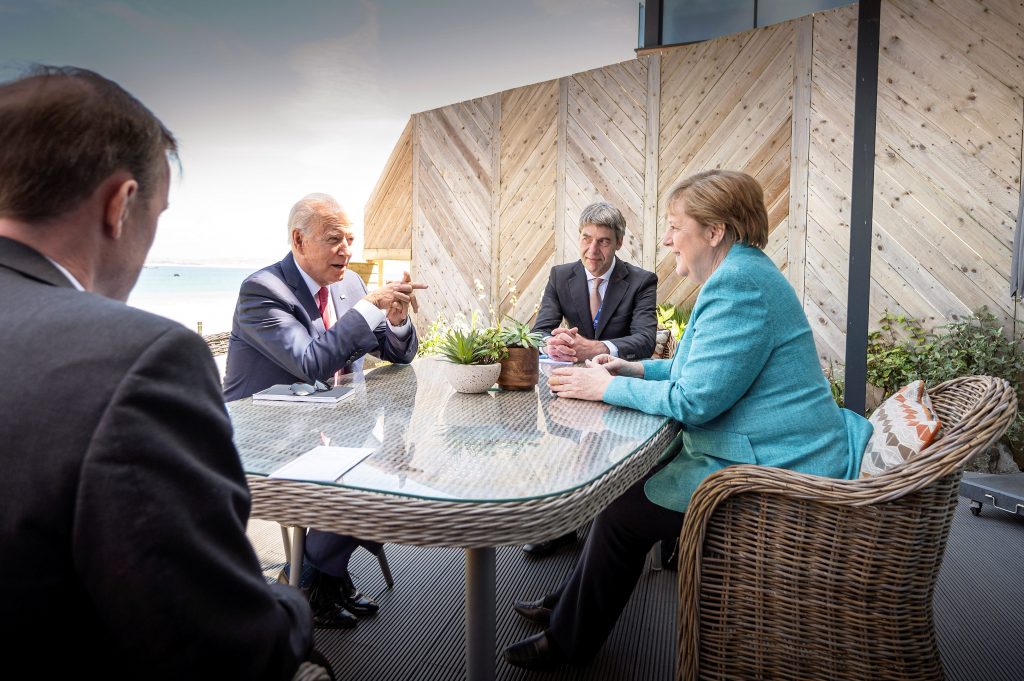
Guido Bergmann/Bundesregierung/Handout via Reuters
- President Biden urged G7 leaders to collectively rebuke China over forced labor.
- "And more than just speaking out, taking action," a senior US administration official said.
- Some G7 leaders with trade ties to Beijing expressed concern about calling out human-rights abuses.
- See more stories on Insider's business page.
President Joe Biden this weekend worked to rally the Group of Seven to offer a collective rebuke to China over forced labor, human-rights abuses, and other "non-market" practices.
The leaders on Saturday found they had a "very strong and shared foundation" for a joint approach to China, a senior US administration official said in a press briefing.
"And more than just speaking out, taking action, responding to forced-labor in supply chains, again, including from Xinjiang," the official said, referencing a region where human rights groups say China has committed crimes against humanity.
Biden has made slowing China's growing economic power and international reach the centerpiece of his foreign policy agenda for his first overseas summit. The G7 nations – US, UK, Canada, France, Germany, Italy, Japan, and the EU – yesterday announced a multi-billion-dollar infrastructure plan to rival the international spending of China's Belt and Road Initiative.

Patrick Semansky/AP Photo
Senior US officials, who spoke to the press on the condition of anonymity, detailed areas where the US and its allies were seeing "convergence" during Saturday's talks in Carbis Bay, England.
The administration said Biden had urged other G7 members to speak out about China's "practices that are harmful and distorted to the global economy."
Biden spoke about China in his breakout one-on-one sessions with Italian Prime Minister Mario Draghi and French President Emmanuel Macron, according to official readouts.
But it was unclear whether Biden would be able to steer the group to include the type of strong, disapproving language the US favors in the official G7 communiqué, which is expected after the summit wraps on Sunday.
Some senior UK officials, for example, have sought to keep human-rights abuses in China off the table, partly because the UK has worked to build up trade with China, Politico reported.
Officials from Italy, Germany, and the EU also each expressed concern on Saturday about putting stress on their economic ties to China, The New York Times reported.
Japan in April expressed similar concern during a White House visit, The Washington Post reported.
A spokesperson for the Chinese embassy in London told Reuters that the "days when global decisions were dictated by a small group of countries are long gone."
The spokesperson said: "We always believe that countries, big or small, strong or weak, poor or rich, are equals, and that world affairs should be handled through consultation by all countries."
